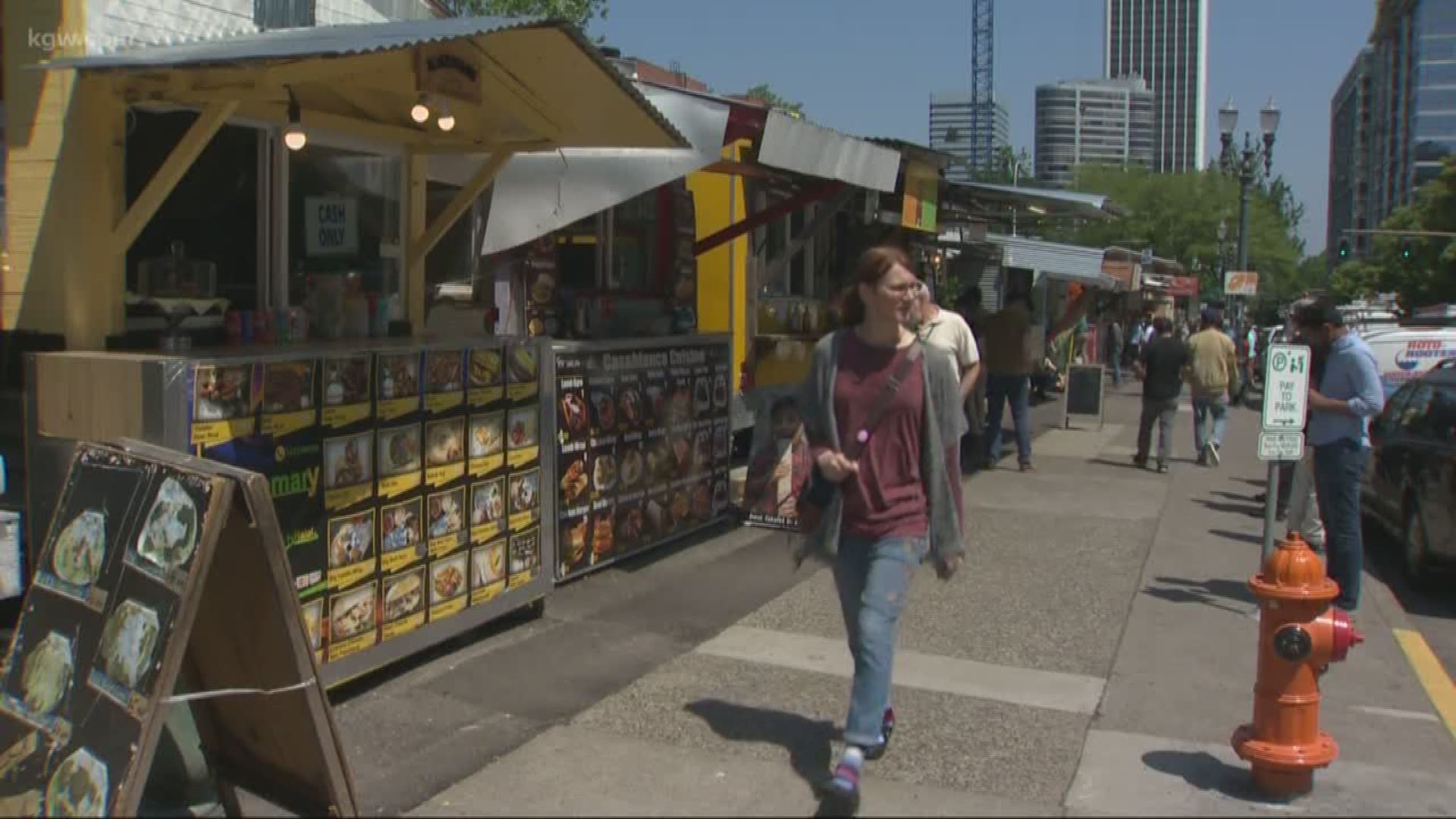PORTLAND, Ore. — Food carts making up the largest pod in Portland have to move out to make way for a 35-story sky rise by the end of next month.
Food cart owners at the food cart pod at Southwest 10th Avenue and Alder Street received notices Thursday telling them they must vacate the area by June 30.
As development springs up on surface lots across Portland, some are concerned the future of food carts downtown hangs in the balance. With that comes fear a piece of Portland's character and identity could be erased.
Serving up mouth-watering crepes, Benjamin Kilassa loves bringing diversity to the Rose City at the food cart pod near Portland State University.
“No food will ever be better than a food cart. Everybody brings a different kind of food with them different cultures whatever it may be,” Kilassa said.
He feels for the small business owners - many of which are immigrants - getting pushed out of the alder pod. Each of them has their own unique stories. The opportunity to open a food cart has provided them lower barriers to entry, and the ability to succeed and thrive.
“I think it's a shame because taking out stuff like this you are taking away the culture," Kilassa added.
Nick Morrison and Will Schmid work up the street from the PSU cart collection, picking up lunch at least twice a week there.
Both regulars feel food carts help define Portland's character.
"I think it’s kind of a bummer to be losing that,” Morrison said.
“This isn't the first food cart pod I've loved that's getting moved around. It happens,” Schmid added.
They hope the cart owners on Alder can set up shop again quickly.
"I’m just hoping most of those carts can still manage to keep their business going because it's tough out there, especially for food carts. The competition is insane, they've got to find a spot and now one of those things is being taken away from them," Schmid added.
Surface lots are being erased in the downtown core. Long-time urbanism and architecture writer and food cart advocate Randy Gragg says it leaves little space left.
“There's sort of an internal contradiction: we want food carts but don't want surface lots,” Gragg told KGW. "It’s really a question of whether we are going to be a distinct city or generic city. And this is kind of one of those turning points."
Gragg doesn't fault developers for building an upscale space that'll bring more tax revenue and other good things to the city; he says it's their land and they are free to do what they want with it in a land ownership system.
"But [food cart pods] bring a lot of good things for the city too," he added. "This is one of the things that’s put Portland on the map, you know. We have a choice: we can either keep it or let it go."
His solution to save the displaced carts: a culinary corridor. Gragg and a group of food cart enthusiasts pitched the proposal to city council months ago and are still working to try to push it through.
“You have to think outside the box. Our idea was could take some parking spaces away and place food carts in them and actually create a corridor taking this part of town and connecting it to Director Park."
“We need to keep this layer of the economy going in Portland. Otherwise, we're really not Portland anymore,” Gragg said.
Regulars KGW talked to are optimistic the city's food cart scene will persist - just maybe not collected in the convenient city center.
“I think there is culture surrounding it so think as long as there's a desire to eat at food cart pods there will be food carts,” Morrison said.
“I guarantee I'll still be here eating good food cart food no matter what it's just more so it might not be the same people doing it, which is a bummer. Some people might be forced out of business," Schmid added.
Working in this world, Kilassa feels where there's a will there's a way.
“Even if they kick us out of here we are always going to find another way to bring business back because if people love it enough they are going to find a way to make it happen,” he said.

